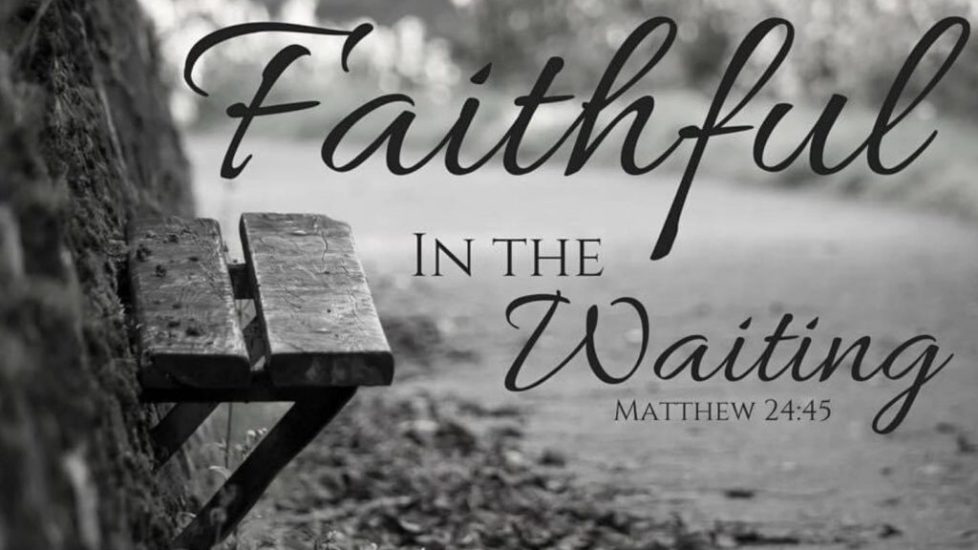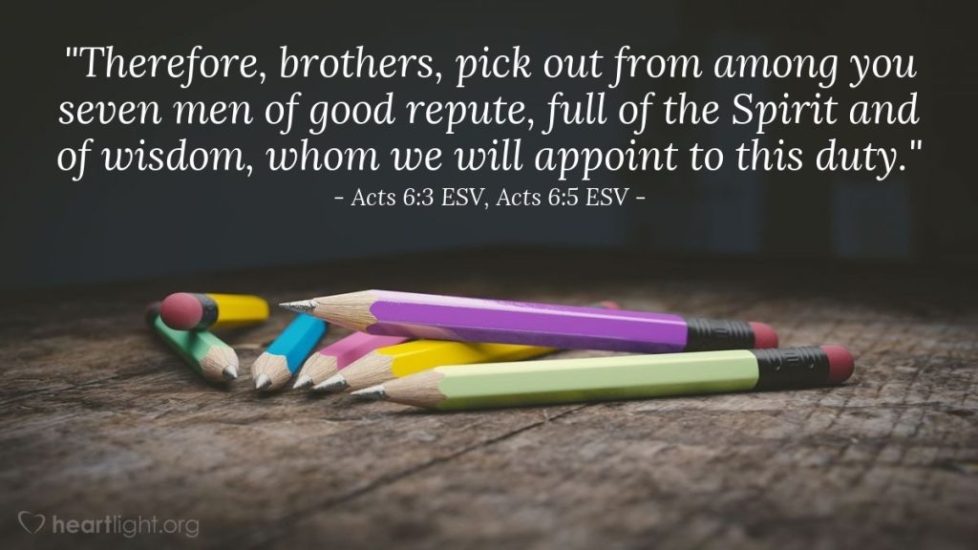The Sheep and Goat Judgment Part 2
Matthew 25:31-46
Last time, we began to look at the sheep and goat judgment at the conclusion of Jesus’ Olivet Discourse, that portion of the Gospel of Matthew in which our Lord taught His disciples about His second coming. Throughout Matthew 24 and 25, Jesus has taught with the purpose of preparing His disciples for His return. He told them, “Watch therefore, for you do not know what hour your Lord is coming” (Matt. 24:42), and “Therefore you also be ready, for the Son of Man is coming at an hour you do not expect” (Matt. 24:44). He said they should be like “a faithful and wise servant … whom his master, when he comes, will find so doing [his master’s will]” (Matt. 24:45, 46).
In the parables of the ten virgins and the talents in Matthew 25, Jesus taught His disciples to be vigilant in their watching (Matt. 25:1-13) and diligent in their working (Matt. 25:14-30) as they faithfully await His return. In this last section of Matthew 25, Jesus described His glorious coming and used the illustration of a shepherd separating the sheep from the goats to portray the judgment of people from the nations at His coming. Last time in Matthew 25:31-33, we saw the …
1. Scene of the Judgment (Matt. 25:31-33)
31 “When the Son of Man comes in His glory, and all the holy angels with Him, then He will sit on the throne of His glory. 32 All the nations will be gathered before Him, and He will separate them one from another, as a shepherd divides his sheep from the goats. 33 And He will set the sheep on His right hand, but the goats on the left.” (Matt. 25:31-33).
And we saw how this section answered several questions about the judgment:
When will this judgment take place? It will be, “ When the Son of Man comes in His glory” (Matt. 25:31), at the time of His return to earth. When He comes, the whole world will see Him.
Then we asked …
Who is the judge? The judge is King Jesus. He is the Son of Man who “will sit on the throne of His glory.” The same Jesus who came humbly and meekly as a servant and a sacrifice in His first advent will come again in glorious power to judge at His second advent.
Next, we asked …
Whom does He judge? Matthew 25:32 says, “All the nations will be gathered before Him.” All people from all nations will be judged. No one escapes His judgment.
Finally, we asked …
How will He judge? Jesus says, “… He will separate them one from another, as a shepherd divides his sheep from the goats. And He will set the sheep on His right hand, but the goats on the left.” (Matt. 25:32-33). Jesus will separate the people into two distinct groups, pictured as the sheep and the goats. It is clear that the sheep represent those who are saved, and the goats represent those who are lost. Jesus calls them “the righteous” (Matt. 25:37) and the “cursed” (Matt. 25:41).
So, this judgment will take place when Jesus Christ, the Son of Man, comes again and sits on His glorious throne as King. He will judge all the people of all nations. He will separate them according to their character as His sheep or as goats. He will bless the righteous and curse the unrighteous.
Today, we will look at the basis for His judgment and the outcome of it. When the Bible describes God’s judgment, the righteous are always judged first, then the unrighteous (1 Pet. 4:17). So first, Jesus gives His …
2. Blessing for the Sheep (Matt. 25:34-40)
Notice the invitation that the King gives to those on His right. Matthew 25:34 says, “Then the King will say to those on His right hand, ‘Come, you blessed of My Father, inherit the kingdom prepared for you from the foundation of the world:’” The king invites them to come into the kingdom because they have already come to know Him as the Good Shepherd of the sheep (John 10:14-15; 27-30).
Three things stand out in this invitation to the sheep. First, the King calls them “you blessed of My Father.” This stresses the fact that their entrance into the kingdom is by the grace of God. They aren’t getting into the kingdom because they had better works than the goats. They are getting in the kingdom because they were blessed by God the Father to have been called to be Christ’s sheep. Their works of mercy did not earn them God’s blessing, the Father’s blessing caused them to do works of mercy. They are the objects of God’s blessing by faith in Christ.
Second, Jesus says to them, “inherit the kingdom.” Their inheritance is given on the basis of their relationship with the Father. If you inherit from your parents, you are given it because of your relationship to them. We inherit the kingdom because we have a relationship with God the Father through His Son Jesus Christ whom God “has appointed heir of all things” (Heb. 1:2). Paul writes this about Christ and our inheritance with Him in Romans 8:
16 The Spirit Himself bears witness with our spirit that we are children of God, 17 and if children, then heirs—heirs of God and joint heirs with Christ, if indeed we suffer with Him, that we may also be glorified together. (Rom. 8:16-17).
Peter puts it this way in 1 Peter 1,
3 Blessed be the God and Father of our Lord Jesus Christ, who according to His abundant mercy has begotten us again to a living hope through the resurrection of Jesus Christ from the dead, 4 to an inheritance incorruptible and undefiled and that does not fade away, reserved in heaven for you, (1 Pet. 1:3-4).
The New Testament is clear. We do not inherit the kingdom because we somehow earned it or merited it by our good works. We are heirs with Christ in His kingdom because by the mercy of God He has given us a new birth by the death and resurrection of Jesus Christ. As the King, the Son of God, Christ inherits His Kingdom from His Father. He will reign in Jerusalem on the throne of Davd for a thousand years. And in the new heavens and the new earth, He will reign for eternity on the throne of God and the Lamb (Rev. 22:3). And we—who by grace are blessed by the Father through faith in Jesus Christ—we will inherit the kingdom with Him. He will be our God and we will be His people. Forever we will joyfully serve and worship Him.
Third, Jesus says that the kingdom is “prepared for you from the foundation of the world.” The kingdom was God’s plan for His children from the beginning of creation. In Genesis 1, God made mankind in His image to have dominion over the earth (Gen. 1:26-28). He put Adam and Eve in the garden to tend and keep it (Gen. 2:15). He gave them authority over His creation (Gen. 1:26; 2:20). But mankind forfeited their kingly status when they rebelled against God and ate of the forbidden tree (Gen. 3). But God still had a plan to restore His people to the kingdom of God (Ge. 3:15). He did that in Christ—through His death and resurrection (Isa. 49:8; Psa. 2:8; Acts 3:18-21). God had our salvation in Christ planned before the foundation of the world.
Paul makes it clear in Ephesians 1, writing,
3 Blessed be the God and Father of our Lord Jesus Christ, who has blessed us with every spiritual blessing in the heavenly places in Christ, 4 just as He chose us in Him before the foundation of the world, that we should be holy and without blame before Him in love, 5 having predestined us to adoption as sons by Jesus Christ to Himself, according to the good pleasure of His will, 6 to the praise of the glory of His grace, by which He made us accepted in the Beloved. 7 In Him we have redemption through His blood, the forgiveness of sins, according to the riches of His grace 8 which He made to abound toward us in all wisdom and prudence, 9 having made known to us the mystery of His will, according to His good pleasure which He purposed in Himself, 10 that in the dispensation of the fullness of the times He might gather together in one all things in Christ, both which are in heaven and which are on earth–in Him. 11 In Him also we have obtained an inheritance, being predestined according to the purpose of Him who works all things according to the counsel of His will, 12 that we who first trusted in Christ should be to the praise of His glory. (Eph. 1:3-12).
Before this world ever came into being by the word of God, the mind of God was already preparing the next world for us and us for it. It was all done in Jesus Christ according to the Father’s will and for His glory.
Having invited the sheep into their inheritance, the King then gives the evidence for His judgment of blessing for the sheep.
The evidence is in Matthew 25:35-36,
35 ‘for I was hungry and you gave Me food; I was thirsty and you gave Me drink; I was a stranger and you took Me in; 36 ‘I was naked and you clothed Me; I was sick and you visited Me; I was in prison and you came to Me.’ (Matt. 25:35-36).
It is what they did to Christ and for Christ that gives evidence that they are sons and daughters of God who are to inherit the kingdom. Jesus mentions six simple things that the sheep did: 1) fed the hungry; 2) gave drink to the thirsty; 3) took in strangers; 4) clothed the naked; 5) cared for the sick; and 6) visited prisoners. They did acts of mercy for those in need. Their acts of compassion and kindness gave evidence of their genuine faith in Jesus. Their mercy was their fruit.
These people did not do works of mercy in order to be saved, they did them because they were saved. Their mercy was evidence of their faith. Paul teaches in Ephesians 2 that we are saved by God’s grace through faith which results in good works. Listen:
8 For by grace you have been saved through faith, and that not of yourselves; it is the gift of God, 9 not of works, lest anyone should boast. 10 For we are His workmanship, created in Christ Jesus for good works, which God prepared beforehand that we should walk in them. (Eph. 2:8-10).
Genuine saving faith always produces good works. The sheep did not earn their salvation by showing mercy. They proved that they had received salvation by showing mercy.
The most interesting thing is that Jesus says they did these simple acts of mercy to Him. And look how Jesus says the sheep respond:
37 “Then the righteous will answer Him, saying, ‘Lord, when did we see You hungry and feed You, or thirsty and give You drink? 38 ‘When did we see You a stranger and take You in, or naked and clothe You? 39 Or when did we see You sick, or in prison, and come to You?’” (Matt. 25:37-39).
Jesus calls them “the righteous”, those who are in right standing with God. But it’s obvious from what they say that they did not do righteous acts to try to earn their place in the kingdom of heaven. If they thought helping others would merit them eternal life, surely, they would have kept track of all the good they had done. But in fact, they weren’t even aware that they were doing these things for Christ. They weren’t the type to boast about all the good they had done. They humbly served without looking for fanfare or rewards.
How did they show mercy to the King? Jesus says, “And the King will answer and say to them, ‘Assuredly, I say to you, inasmuch as you did it to one of the least of these My brethren, you did it to Me.’” (Matt. 25:40). When they helped others, specifically, “the least of these My brethren,” then they were helping Christ.
What does Jesus mean when He calls the ones they helped, “the least of these My brethren”? Some people consider “the least of these My brethren” to refer to all the poor and needy of the world, the afflicted, and the suffering. So, they believe that when you treat the poor and needy with love and kindness and reach out to meet their needs and when you send food and money to aid the starving in a part of the world suffering from famine, you are doing this to Christ and will be rewarded by Him. In a sense, this is an important emphasis. God Himself cares about the hungry and thirsty, the strangers and poor, the sick and imprisoned. We have seen in the Gospel of Matthew how Jesus had compassion on the multitudes, how He fed the hungry, healed the sick, and cared for the needy.
But in another sense, we have to see that Jesus is very specific in the Gospels about those who are His “brethren”. In Matthew 12, when Jesus heard that His earthly mother and brothers stood outside seeking to speak to Him, Jesus asked, “Who is My mother and who are My brothers?” (Matt. 12:48). Then Matthew writes,
49 And He stretched out His hand toward His disciples and said, “Here are My mother and My brothers! 50 “For whoever does the will of My Father in heaven is My brother and sister and mother.” (Matt. 12:49-50).
In Matthew 10, Jesus said to His disciples,
40 “He who receives you receives Me, and he who receives Me receives Him who sent Me. … 42 And whoever gives one of these little ones only a cup of cold water in the name of a disciple, assuredly, I say to you, he shall by no means lose his reward.” (Matt. 10:40, 42).
I believe “My brethren” refers specifically to believers here. When we serve fellow believers in Christ, we are serving Christ. Love and care for your brethren in Christ is positive evidence of your faith in Christ. So, we should especially serve fellow believers. But that doesn’t mean we are not to help others as well. In Galatians 6:10, Paul gives a good guideline to follow: “Therefore, as we have opportunity, let us do good to all, especially to those who are of the household of faith.” In other words, you should help everyone you can, whether they’re a believer or not. But you can’t help everyone, so you should especially do good to your brothers and sisters in Christ.
This is the blessing for the sheep. They are those who were saved by grace and demonstrated that faith by the evidence of humble works of mercy and kindness done for Christ. They will inherit the kingdom.
Next, Jesus indicates the …
3. Curse for the Goats (Matt. 25:41-45)
What was true for the sheep was the opposite for the goats. Jesus says, “Then He will also say to those on the left hand, ‘Depart from Me, you cursed, into the everlasting fire prepared for the devil and his angels:” (Matt. 25:41). The sheep were blessed; the goats were cursed. The sheep were invited to come; the goats were commanded to depart. The sheep inherit the kingdom; the goats go to the everlasting fire. The kingdom of heaven was prepared for God’s people since the foundation of the world (Matt. 25:34), whereas hell was prepared for the devil and his angels (Matt. 25:41).
The evidence for their condemnation in judgment is not what they did, but what they failed to do. They were the opposite of the sheep. Jesus says,
42 ‘for I was hungry and you gave Me no food; I was thirsty and you gave Me no drink; 43 ‘I was a stranger and you did not take Me in, naked and you did not clothe Me, sick and in prison and you did not visit Me.’ (Matt. 25:42-43).
Their lack of compassion was evidence of their lack of love for Christ. Listen, the fact that the goats failed to help the poor did not cause them to be lost. When they did not serve Christ by helping the needy, they proved that they were already lost. Their sins of omission were evidence against them. And the tragic fact is that they were oblivious to the whole thing. Matthew 25:44-45 says,
44 “Then they also will answer Him, saying, ‘Lord, when did we see You hungry or thirsty or a stranger or naked or sick or in prison, and did not minister to You?’ 45 Then He will answer them, saying, ‘Assuredly, I say to you, inasmuch as you did not do it to one of the least of these, you did not do it to Me.’” (Matt. 25:44-45).
They were so self-centered and self-satisfied that they did not even notice the suffering around them. Their lack of mercy gave evidence of their lack of faith in Christ and love for Christ. The goats are condemned to the eternal fire not just because they didn’t care for the King’s needy brothers, but because their unconcern was evidence that they didn’t really know or love the King at all.
Finally, look at their …
4. Eternal Destinies (Matt. 25:46)
Jesus says, “And these will go away into everlasting punishment, but the righteous into eternal life.” (Matt. 25:46).
There are only two eternal destinies for mankind: everlasting punishment or everlasting life. Eternal life is the gift of God to everyone who believes on the Lord Jesus Christ. John 3:16 says, “For God so loved the world that He gave His only begotten Son, that whoever believes in Him should not perish but have everlasting life.” John 3:36 shows the contrast even more bluntly, “He who believes in the Son has everlasting life; and he who does not believe the Son shall not see life, but the wrath of God abides on him.”
Eternal life is life that enjoys the presence of God forever. The opposite of that is eternal punishment: enduring suffering and personal conscious torment forever and ever and ever. The punishment is everlasting and infinite because they have sinned against the infinitely holy and eternal God. The unbelieving sinful nature of the unrighteous in hell will not be changed even after eons of punishment. They will still hate God and refuse to believe in Christ. Don’t be deceived by the lies of this modern world which relegates eternal suffering in hell to the dustbin of antiquity. Hell is still real. Hell is punishment. Hell is eternal. Jesus was clear about that.
Why does Jesus tell us about this judgment and the eternal destinies of the righteous and unrighteous? It’s the same reason He told us about the tribulation and His second coming. He wants us to be ready, to be prepared, to be wise and faithful, to be vigilant in our waiting, and to be diligent in our working. He warns us of this coming judgment so that we would escape hell and enter into the kingdom of heaven by faith in Him.
This is why Jesus came the first time—to save us from sin, death, and hell. He gave His life on the cross to pay the punishment for our sins. He was rejected so that we could be accepted. He died so that we could live. He took our sin so that we could receive His righteousness.
I love what John MacArthur wrote about this:
“In light of the utter and perfect holiness of the Almighty and the persistent sinfulness and ungodliness of man…it is not the Lord’s coming in wrath to render judgment that is amazing but rather His first coming in grace to offer salvation. The wonder is not that Jesus will some day come in glory to judge the world but that He first came in humility to save sinners. The marvel is not that God promises to condemn sinners for their sin but that He first offers them deliverance from it. In coming to save those who trust in Him, the Lord Jesus Christ demonstrated His great love for the unlovely by bearing the penalty of their sin, dying the death they deserve. What is remarkable is that He came to redeem sinners who are worthy only of His judgment.”[1]
Come to Jesus today. He will save you and give you eternal life. He will give you a new heart to serve Him by serving others. He will live in you and you in Him. Don’t wait until it’s too late.
——————————————————–
[1] MacArthur, John [The MacArthur New Testament Commentary; Matthew 24-28; Moody Press, Chicago, Ill, 1984] pg. 114.






